|
Dear friends of Secrets of Organ Playing!
Happy upcoming New Year! Ausra and I hope you and your loved ones will stay healthy and creative! We are so looking forward to helping you achieve your dreams in organ playing and beyond. The deadline for the contest poll has passed and 10 people voted Yes, 13 people voted No and 12 people voted Don't know yet. So it seems that it's worth having this contest running for at least a month. After January, we will re-evaluate how much interest is there from participants, is it feasible etc. I have wrote a post about it for people who would like to enter: Here are the rules Hope to see many of you participate because there is almost no limitation (check the rules for details). Beginners and advanced organists can participate equally well. But first, you have to create your Steem account. I can create it very fast to you. Just write me an email your desired username. Remember that you don't have to use you real name. You will stay anonymous this way. After you send me an email with your desired username, I will create your account on Steem and send you an email back with your generated password. VERY IMPORTANT: Make sure you back up your password in a safe place because if you lose it, your account can't be recovered. Last week I already created one account for @deinocheirus and look forward to many more. If you have any questions about Steem in general or about the contest in particular, please let me know. Follow me and Ausra on Steem. I'm @organduo and Ausra is @laputis there. And remember, when you practice, miracles happen!
Comments
Just a quick reminder about the poll we are having where we would like to know your opinion about our new Secrets of Organ Playing Contest. If you haven't voted, please do so by the end of this week in this post.
Also we'd like to congratulations to Nancy and Lev who recently took advantage of 50% Christmas discount of Total Organist. We're sure they will advance faster in organ playing than on their own! And now let's go to the podcast for today.
Vidas: Hi guys, this is Vidas.
Ausra: And Ausra. V: Let’s start episode 362 of Secrets of Organ Playing Podcast. This question was sent sent by John, and he writes: Dear Vidas, I'm lucky that a former pupil will be playing organ voluntaries for me (i) at Midnight Mass (Widor - Toccata) and (ii) at the Carol Service (Joie et clarite - Messiaen). He's just 17 and has won a place at Chetham's school of music in Manchester. I shall re-learn Dupre's Prelude and Fugue in B major in the New Year. I studied it during my student days, but as you know, it needs constant performance to keep it up to scratch. An enlightened wedding couple have asked me for Mullet's Carillon-Sortie later in the year. A project for 2019 will be to write some short pieces for manuals only as a homage to Vierne's 24 Pieces. I adore Vierne's music and think him a much better composer than Widor. I am at present writing a S. John Passion for a village choir to sing - simple chorus parts, but a good [tricky] evangelist solo line. I shall also learn later in 2019 Bach's "Komm Gott" fantasia, a piece I have never played and hopefully it will be ready for Pentecost. I'll send you the church Spring term's music list when it is finally drafted. Best wishes for Christmas and the New Year, John V: So, Ausra, John is quite advanced in organ playing and also probably in composition, if he is composing Saint John’s passion. A: Definitely, he’s very advanced, because the pieces he mentioned that on his list are really difficult to play. V: One thing that I found interesting is Dupré’s “Prelude and Fugue in B major”, and he will be planning to relearn it in this new year! A: It will take some time! I remember I did that piece; It’s not an easy piece—especially the fugue. The prelude is quite comfortable, but the fugue, you have to put some effort into it, because the subject, the theme of this fugue has quite wide leaps and a very fast tempo, and to play it all legato, it’s quite a challenge. V: Mhm. I also played this piece many years ago. A: Did you? V: As a student, I think. A: No, I don’t think you did. V: I think I played all three of them. A: Really? When? Was it in the United States? Because, I cannot remember you playing any of these pieces. V: Maybe I was dreaming about them. A: Maybe you are getting old, because I know that I have played B major in the Academy of Music. V: Maybe you are getting old! A: During my first year of masters studies. V: Maybe I played it with Pamela, no? A: All three of them? But how come I don’t remember it at all? V: You were focused on other pieces? A: I don’t think so. V: What were you playing with Pamela? A: For my recital? V: Mhm! A: Bach’s “C major Toccata”, “Adagio and Fugue”, then Reger’s “Fantasie 135B” (“Fantasie and Fugue,” of course), then I did Franck’s “B minor Chorale”, and a piece called “Walpurgisnacht,” from Petr Eben’s “Faust.” V: “Walpurgis Night,” right? A: Mhm! V: So, you see, maybe you were so focused on your repertoire that you didn’t pay attention to what I was playing! Is that possible? A: I don’t think so, because at that time, you, I believe, played Reger’s “Ein’ Feste Burg.” I don’t think it would be suited to play together with Dupré’s “Three Preludes.” V: But, I think I played them all. A: Maybe you did, I don’t know. V: But A: Not in a life with me! V: In another life! A: Yes. V: Interesting. I remember those Carillon sounds in B major prelude by Dupré. A: It was beautiful when I played it. I just felt that I’m standing in front of Notre Dame de Paris. Somehow this piece reminded me of this place. V: But you didn’t choose this piece for your Notre Dame recital. A: Maybe we wouldn’t have picked it anyway, so... V: Yeah, as you say, Fugue is more advanced. The theme is sort of tricky to handle in the pedals. Or not? A: Yes, it is, and that is what I was talking about. V: Mhm.. Dupré knew how to write fugues, I think, very well. A: And somehow, I don’t know… everybody says that third one, “Prelude and Fugue” is the hardest one. V: “G minor”? A: Yes. But then, I sight read it, I found that B major is harder. V: Maybe because of the tempo! A: Because of the Fugue. V: Maybe because of the tempo, “G minor” seems very virtuosic. And then the fugue expands into maybe a scherzo like motion towards the end. Maybe that’s what frightens people. A: True, but as we once heard in the Oberlin Conference, where one lady performed all three of them… V: All three of them! We will not mention her name…. A: And she switched the B major and G minor places, so she played G minor first, and she left the B major for the end, and she screwed up totally in the B major one. Although, the entire performance was quite sloppy. V: And she was apologizing before even playing! A: Before playing, yes. So, I guess if you are not ready and something is wrong, you’d better cancel your recital. V: We heard also a very very sloppy performance of Bach’s Klavier Übung part 3. A: That’s right. V: Also will not mention who played it, out of respect. A: But these were high professionals, and they have played them extremely well before, so… V: They are internationally renown organ players. Virtuosos. A: So I guess if you are not ready, you just need to cancel. V: Another thing that stuck from John’s message is that an enlightened wedding couple asked him to perform Mulet’s “Carillon Sortie” later in the year…. Do you know if any weddings that are played when a wedding couple would ask such a piece besides Widor Toccata…. Widor Tocatta is possible, right? But in Lithuania, it’s not even probably known very well. But “Carillon” by Henry Mulet would be even very remote choice. A: Oh yes! But it shows that that couple really knows things about organ music, about organ repertoire, so…. V: I hope that John will enjoy this piece a lot. A: But I wonder how much they are willing to pay for him to do this piece, too, because probably it’s not something that’s very common in every organists repertoire. V: But once he learns it, he can play it for recitals in another occasion. A: That’s true. V: Re-purpose. Recycle. He says that he likes Vierne’s music better than Widor’s. Do you agree… A: Well, actually, he formulates that…. In a different question, he thinks that Vierne is a better composer than Widor. And personally, I like Vierne’s music much better, but I would never say that Vierne is a better composer than Widor, because who are we that we would say such a thing? V: It’s difficult to judge, right? A: Yes, you just can say based on your personal taste that you prefer one composer’s music and not another’s, because they are very different, and I like Vierne much better, and I wanted to find out, to understand, why I prefer Vierne above Widor, and I realized that Vierne’s forms of musical compositions are very classical and easy to understand. And that’s why, probably, he’s my favorite. V: But on the other hand, the forms of Widor sort of are much more free and flexible and spontaneous. Doesn’t it mean that he was more creative than Vierne? A: Well, it’s hard to tell. V: From that point of view. Not looking at the harmonies. Probably the harmonies are stronger. A: Vierne’s harmonies are much more complex and much more complicated, and really, much more advanced than Widor’s. V: True. Well, I guess it’s a personal preference of people, right? A: But anyway, I think they were both great composers and left a significant input for the organ world. V: And one would not exist without the other, probably. A: I think so, yes, because somehow they are always mentioned together, of course, because they both wrote organ symphonies. V: Right. So, let’s wish John a great new year, and a very creative and passionate new year, that he would continue to create and work on his projects and wish him success. A: Sure! V: And everyone else, please send us more of your questions; we love helping you grow. And remember, when you practice, A: Miracles happen.
Just a quick reminder about the poll we are having where we would like to know your opinion about our new Secrets of Organ Playing Contest. If you haven't voted, please do so by the end of this week in this post.
Also we'd like to congratulate Nancy and Lev who recently took advantage of 50% Christmas discount of Total Organist. We're sure they will learn a lot and advance much faster than they would on their own! And now let's go to the podcast for today.
Vidas: Hi guys, this is Vidas.
Ausra: And Ausra. V: Let’s start episode 363 of Secrets of Organ Playing Podcast. This question was sent by Leon and he writes: “Dear Vidas and Ausra: I had a mild case of the flu from Saturday through Tuesday. Seemed like a cold for the first two days, but "the grippe" was there when I awoke Monday. Thanks to the flu shot in September all was able to be treated with symptomatic meds, and no fever. So when I got back to practice yesterday, I decided to retry the OrgelBuchlein. I was able to do No. 1 at half speed with only two mistakes. And rediscovered that I had done the 15-step method on them all from November 2017 to March of this year. I'd completely forgotten that, but the penciled in evidence is there on the music - computer-printer copies from IMSLP. So, an unexpected early Christmas present thanks to you two. Merry Christmas! Leon” A: Very nice letter. V: Let’s start with the flu. How are you feeling by the way today, Ausra? A: I’m a little bit sick and I have a little bit of fever since last so I might be getting flu as well. V: Let’s hope that it will pass like Leon’s case. A: Let’s hope for it because I also got my flu shot in October. V: Umm-hmm. A: So I’m sort of ready for flu season. V: And then he writes that he practiced OrgelBuchlein No. 1 at half speed with only two mistakes. That’s a good evidence that he’s progressing with his organ playing don’t you think? A: Yes, I think that’s a good sign. V: In general I think that when people are stuck and doing things step-by-step they are not really noticing their own progress and that’s OK. We all are in this situation so then we suggest that after three or six months that you go back to some previously more difficult pieces that you even didn’t play but just played as a sight-reading exercise and try it out now and chances are if you were diligent in your organ playing and sight-reading over the course of six months that this particular piece would go much easier this time. A: Yes, in general I think that when we practice on a daily basis often we cannot notice our progress but if we do a break and then we come back to it then we can see it more clearly as it was in Leon’s case. V: Do you like the 15-step method Ausra? You know what I am talking about, right? Solo parts, then two-part combinations, then three-part combinations, and then four-part structure, if the piece has four parts of course. A: Yes, I know this system, I think it’s excellent if you have patience and if you have enough time. V: But it’s not for everyone, right? A: True. V: For example right now I’m practicing Sonata "Ad Patres" by Bronius Kutavicius, a living Lithuanian composer, and my recital is coming up in January and this is a playable piece, not too difficult except for the middle section, quite virtuosic, but this section is kind of repeating itself sort of like 13 times and if you learn one or two repetitions you learn the entire thing. So what I’m doing now I’m not playing 15 step combinations but I’m gradually expanding the fragments by starting every quarter-note, every half-note, every measure, every two measures and so on, doubling the length of each fragment. A: I think that this approach of 15 steps I think it’s very worth trying if you are learning pieces by J.S. Bach. V: Polyphonic music. A: Polyphonic music, yes. V: Umm-hmm. A: Because for some pieces there might be other things you need to work on. V: Right and plus it depends on your level of advancement. A: That’s right. V: Maybe I would do 15-step method on a very complicated fugue but not necessarily on a Orgelbuchlein chorale. A: But if you are a beginner then I think this approach would be useful to probably any piece. V: Obviously. Yes, definitely, 100 percent correct. And if the piece is not polyphonic but has a few layers, right-hand, left-hand and pedals, three layers, then we need to look at it from a different perspective, maybe work one hand at a time, that would be right-hand alone, left-hand alone, and pedals alone, also in fragments and then two-part combinations would be right-hand and left-hand, right-hand and pedal, left-hand and pedal and only then the last combination all parts together. So 7-step method here would be possible to do if the music is not polyphonically created but again it depends on your level of advancement. A: That’s right. V: Umm-hmm. So it seems like Leon is having a great time practicing, hopefully next year will pass without flu. A: Yes, let’s hope for that and let’s wish everybody good health because it’s sort of a mean thing to everybody. V: Umm-hmm. And when we receive messages like that when he writes “an unexpected early Christmas present thanks to you two” it’s really very pleasing to read, right Ausra? A: Yes, then I feel like Santa. V: You are Santa? A: Yes. V: Oh no, I thought Leon was Santa. Maybe you are right and I am right too, maybe you both are Santa’s to me (laughs.) Again, we give presents all the time, right? We give advice freely and for people who take the advice and apply them in their practice this becomes a present. Not only advice but something that they can apply in their lives and improve their lives. A: True. V: Hopefully sometimes not even organ playing but sometimes other things. So those people like Leon who practice diligently will I think sooner or later reap results, don’t you think Ausra? A: Obviously, yes. V: If you are just banging your head against the wall then sooner or later something will break (laughs.) A: You are making rather funny comments. V: That’s good. A: That’s usual. V: So wonderful, thank you guys for sending those questions and please continue to do so even in the next year because next year maybe will be a new beginning to you. Maybe you will start to look at your own organ playing activities from a different perspective. Maybe you will have something like New Years Resolutions but I don’t really believe in New Years Resolutions don’t you Ausra? A: Well, me too because usually it doesn’t work. V: Yeah, it works for two weeks. A: Because when we attend our gym we always notice that before New Years and right at the beginning of New Years there are so many people attending the gym but then in the middle of January they are disappearing. V: Yes, they say “Oh I will start losing weight” or “Oh I will start going to the gym every day” or “Oh I will lift the weights every day” and this is too much. It’s better to say “Oh I will practice for 15 minutes a day” whatever it means practice, doing push-ups, or taking a walk or running or swimming. For organ playing the same, you don’t need to practice for 3 or 4 hours like some of our students do obviously at the beginning, maybe later you will have the strength to do that but first you have to get the stamina and the best way to do that is step-by-step maybe gradually increasing the length of practice time by ten percent a week. A: And if you want to watch something funny for New Years Resolutions you can watch Bridget Jones movie, the first movie. V: Bridget Jones Diary. A: Yes, where she gives New Years resolutions. V: Oh, (laughs) we will not say anything more. A: True, I hope you will enjoy it. V: No spoilers. Thank you guys for listening, for applying our tips in your practice, please keep sending us your wonderful questions, we love helping you grow and remember, when you practice… A: Miracles happen.
Just a quick reminder about the poll we are having where we would like to know your opinion about our new Secrets of Organ Playing Contest. If you haven't voted, please do so by the end of this week in this post.
Also we'd like to congratulate Fidelma, Danielle, Emogene and Andrei who recently took advantage of 50% Christmas discount of Total Organist. We're sure you'll learn a lot! And now let's go to the podcast for today.
Vidas: Hi guys, this is Vidas.
Ausra: And Ausra. V: Let’s start episode 361 of Secrets of Organ Playing Podcast. This question was sent by Lisa and she writes: “Why is it bad to double the bass line in the pedals? I don’t notice much difference in the sound. I’m a new organist, having played the piano for church for 30 years.” V: That’s a nice question, right Ausra? A: It is. V: And we have talked about it a few times but for people who come to the organ from piano background it’s not so apparent. A: True and it’s like a regular kitchen and dishes is comparing to gourmet kitchen and dishes. That’s what it is when you double pedal with your left hand and then you don’t. You need to develop a keen sense of what you are playing and you really need to develop your ability to listen and to hear things. It comes with experience. V: Umm-hmm. I wrote to Lisa that if you double the pedals you won’t be able to develop left-hand and pedal independence. That’s the main thing and independence is needed when playing real organ music. But if organists work at church don’t have any interest in real organ music and they only stick to hymns then what we’re talking about is not really understandable to them. It sounds well, it really does and there are organ pieces like that where pedal bass is doubling the left-hand bass, for example right now I am playing Priere by Juozas Naujalis and throughout this piece somehow he wrote this doubling in the pedals and in the left-hand maybe because he didn’t have in mind a big enough organ, I don’t know, but he had many instruments at hand … A: Look if you have let’s say big organ you are adding big registration, what happens when you double bass and left-hand. That’s already each organ stop, if you pull out 8’ stop and 6’ stop and then you put let’s say 4’ and 2’ and blah, blah, blah, and mixtures, how many already sounds do you have for each single note, it’s above all imaginable. V: In the pedals, right? A: Yes. V: Umm-hmm. A: And in any also in the manuals because no, you rarely play with one stop pulled out . V: Umm-hmm. A: It already doubles in itself in that single voice. It already doubles itself and triples and quadruples. V: Huh, I see. A: So why do you need to do that unless it was composers’ wish. V: But I don’t understand why this wish was Naujalis position. A: Well I don’t care so much about it, maybe he really didn’t have a big pedal. V: Or maybe he wrote this piece for organists who couldn’t really play pedals and left-hand independently in Lithuania. A: That’s more possible because he worked for many years as organ teacher too so maybe he noticed this problem as well. V: And that’s why he wrote those wonderful organ trios. A: But anyway, when a composer does that he probably wants to give more gravity to the pedals and to the lower parts of a piece. But I don’t’ think it’s so much stood for him, that’s my opinion, and do whatever you want, you know you are free person. V: So for Lisa and others who are wondering why we do not double the bass line in left-hand… I was just reading this question one more time and she is asking backwards. “Why is it bad to double the bass line in the pedals.” In the pedals it’s good, but in the left-hand it’s not good. A: Yes, that’s what happens to you because when you have a hymn it’s four voices most often and what people do is they play all four voices on the manuals and then put the lowest voice on the pedal part and what we are meaning is that you need to play three voices on the manuals, so soprano, alto, tenor and then to play the bottom line with your pedals. V: I think Lisa needs to try this technique, right? It’s rather new to her and rather uncomfortable probably at the beginning and she will struggle with those hymns and that’s OK. It will just mean that if she’s up to the challenge, it is a challenge for beginners. A: It’s just that I did not understand her question right from the beginning. V: I understood the question but she is writing it backwards. In her mind probably it’s normal to play the bass line in the left-hand and then why do we need to double the bass line in the pedals. A: We need to play the bass line with the pedals and not with your left-hand. V: Exactly. If you play without any pedals then obviously play the bass line with the left hand. But that is the point, if you always play without pedals you will never learn to play the pedals and then it will be hard to call yourself a real organist. A: True, then better stick with the piano if you don’t want to play the pedals. V: Charles Tournemire once wrote that organists who cannot improvise are just half organists. So what would he call people who play the organ without pedals? One-third organist or what? A: One-fourth? V: One-fourth probably. We are not making fun of Lisa or anyone else of course. We’re just suggesting to try out this technique and not to play as it’s written right away but just play it and treat it as a real organ piece. It’s very small maybe one page long, one minute long, right? And you first master it probably voice by voice, and then two voice combinations, and then three part combinations and only then tackle four-part texture. For Lisa if she has played piano for church for 30 years maybe she doesn’t need to play separate voices at first, maybe she can do two voices but definitely she needs pedal line separately. A: Sure and why pedal, the bass line on the pedalboard sounds better than on the manuals, that’s because you have more 16’ stops on the pedal and you give it gravity which is very nice for hymn accompanying and congregational singing. V: Yeah, it’s like having double basses in the orchestra. A: You will not have that effect if you will only use manuals even if you put the 16’ on the manuals but will not use the pedal the effect will not be as nice. V: I haven’t thought about that for many times but now it’s very obvious, if you omit double basses from the orchestra it’s not just the 16’ is missing it’s the entire foundation is missing. A: That’s right. V: The same is for organ too. A: I don’t think you would be able to listen to the violin for such a long time without double basses. V: Exactly. Well, people need to try those challenging things, right? That’s why we are learning. That’s why we are trying to get better at things we couldn’t do yesterday, right? There wouldn’t be a point of practicing and spending hours on the organ bench if all we ever wanted to do was to play the hymns in way that we always play. A: That’s right. V: Even playing the hymns are maybe ten or twenty or thirty different ways and that’s another challenge in itself, but that’s the theme for another Podcast. Thank you guys for listening, this was fun, and please keep sending your wonderful questions and we hope to help you grow and remember when you practice… A: Miracles happen. Dear Secrets of Organ Playing friends! For those of you who would like to skip to the clicking part, feel free to scroll to the bottom of this message. There is a short poll. For the rest, please read on. The new year means a new beginning, right? In order to motivate you to practice more and advance in organ playing faster, Ausra and I are thinking of starting Secrets of Organ Playing Contest on the Steem blockchain where participants would be rewarded for their entries with our upvotes and 3 winning entries that we select would receive prizes in Steem currency. The idea for this contest is sort of an open mic with a freedom of what you can submit: any organ piece, any improvisation, any hymn or any exercise. The entries can be of any length. This way basically anyone who plays the organ can participate regardless of taste or technical level of advancement or experience. The only limitation is that your entry must be played by you. Basically what you would need to do is to record yourself playing the organ, say the magic word (which will be announced for each week's round) so that we would know it's specifically created for this contest, upload the recording to YouTube or DTube, make a post about it on your Steem profile and put a link of your post as a comment to my contest announcement post on Steem. Steem has recently upgraded their blockchain so that existing users with sufficient amount of stake could create new accounts instantly. What this means is that you would just need to send me an email asking me to create your account on Steem for you and specify what profile name would you like to get. It doesn't have to be your real name, of course. Then I will send you your newly generated account password and you will be ready to post on Steem. You could obviously create a Steem account yourself on steemit.com, but verification process this way takes about 2 weeks. Not many people will want to wait that long. Please keep in mind that currently we only have the capacity to create 20 new accounts so if you really want to get it, let me know right away. First come, first served. Additional new accounts can be added later at a rate of about 3 per day. At first we would organize this contest until February as a test to see if this works, if it's feasible, if there are enough funds and if there is enough interest from participants. So in order to know at least the interest, we'd like to conduct a short poll where you would only need to click "Yes" or "No" as an answer. Very easy, simple and fast. Please submit your answer by the end of Sunday, December 30. Here it is: Who is your favorite singer?We will announce the poll results and if there is enough interest, the contest with detailed rules for participation on Monday, December 31.
Ausra and I hope everyone had a great Christmas day with plenty of food, music and celebration.
The New Year is not far away and 2019 can become your new start in organ playing. That's why we are offering Total Organist Christmas discount until January 1st. Monthly or yearly membership is 50 % off. Check it out here Here's what some of our Total Organist students are saying: Jeremy: I have been a member for about a year now, and have used several of the courses to my sight reading, transposition, Bach articulate legato, hymn playing, and improvisation. Also, I have really enjoyed learning historically informed fingerings. Ruth: I like it very much. It is inspiring, informative, and encouraging, I believe, not only to me but also to organists of all levels. I have been learning about composers and periods of music in a variety of countries. Merci pour tout! Thank you for everything. Anne: I love Total Organist. The work that Vidas and Ausra have put into it is amazing. I like having access to all the classical music that they have edited and videos they post. The fingerings and pedal markings are very helpful when I start a new organ piece. I especially like being able to read how other organists from all over the world are solving problems in playing the organ. It's very helpful to me in my journey to learn to play this magnificent instrument! If you have been thinking about starting your Total Organist journey, until January 1st is the best time because besides 50 % discount you will also get the 1st month free: Check it out here Dear friends of Secrets of Organ Playing! Ausra and I would like to wish you a Merry Christmas and hope that everyone will have a chance to sit around the Christmas table today with your loved ones. In Lithuania an ancient tradition is to have a dinner on Christmas Eve. We have to have 12 sorts of food (including bread) otherwise next year will not be prosperous. Lithuanians don't eat meat on Christmas Eve. Fish and herring are big part of the menu. The dinner starts with the reading of the Nativity story from the Bible. Mostly from the Gospel of Luke but this year we went with Matthew. Here's our Christmas Eve table. We gathered at Ausra's parent's place. The first thing I did was to visit with Ausra's colleague from school and give her Christmas cookies and my Pinky and Spiky comic book. She gave us home-made bread. It's sourdough rye bread. Very heavy. A loaf of this bread weighs about a kilo. You can see it on the table here: Next to the bread you can see poppy seeds. We use it to eat a sort of sweet soup with sugar, special cookies and water. Very filling and makes you very sleepy fast. Ausra's mom made two kinds of pastries - one with mushrooms that they gathered in the woods around Vilnius in the summer. At the beginning of the dinner everyone takes special waffles made like Communion and special Christmas ornaments and shares with the others around the table. For fish Ausra's mom baked sea-perch. We haven't eaten it for a long time and it tasted so good. It's a good fish - not too many tiny bones. We ate it with steamed veggies. Another kind of pastries was made with veggie filling. The same veggies that went together with sea-perch. At this time of the year, it's good to have some oven-baked apples. They are no longer sour and very good for digestion. Here you can see also some Christmas cookies that Ausra's mom made. They would look well on the Christmas tree. Ausra's mom baked a delicious-looking Christmas cake which we didn't try yesterday but it was reserved for Christmas day. The other cake we bought from a store. It's a real German-style Christmas cake. It lacks home-made quality though... As I mentioned before, Lithuanians eat meat on Christmas day. Here you can see a Fake Hare made from minced pork. The other kind is ham baked in the oven. It's reserved for December 25. This is all, my friends...
I know, it's lots of food but only to ensure that the next year will be prosperous. After eating, Ausra's parents danced their favorite dances from their youth - waltz, foxtrot and polka. They made us watch and record them on the phone... Even though they are in their 70's, they still got the moves. Now Ausra and I are going to go home and light some Christmas lights, draw some Pinky and Spiky comics and wait for Santa to come... How do you celebrate Christmas?
Vidas: Hi guys, this is Vidas.
Ausra: And Ausra. V: Let’s start episode 360 of Secrets of Organ Playing Podcast. This question was sent sent by Rob, and he writes: Hello Ausra and Vidas, Enjoyed the story featuring pointed high heel shoes and what Anders said in today’s post about his organ shoes. So, let me share my organ shoes (well, not literally, of course) with you, Anders and all other readers of your posts. Nobody plays the organ wearing gloves, it wouldn’t make sense. Yet, in a way, we do wear “gloves” on our feet. (I remember that Rhoda Scott played her Hammond organ pedals with bare feet). Just as much as we need to feel the manuals in our fingers/hands, we need to feel the pedals in our feet. My organ shoes are supple (i.e. not too thick or sturdy) leather shoes with thin leather soles, almost (but not quite) like moccasins. The soles are “slippery” and without patterns or anything like that. These shoes are a snug fit on my feet so my feet can’t move about in them. They are not too tight by any means. They are round shaped where my toes are and have a normal, round heel (certainly not high heels, haha). These shoes enable me to slide over the pedals and dance when required. In shape, as I said they are round (slightly pointed is also an option) so moving from one black key to the next (adjacent) black can easily be done without getting stuck between black keys and white keys. Heel-to-toe movement is natural and without effort. The thin soles allow me to really feel the pedals, and there is the similarity with fingers feeling the keys on the manuals. In these shoes, my feet know the “topography” of the pedal board so it is rarely necessary to look down to direct my feet on sight. These, all in all, are the characteristics of my organ shoes. They are now more than 35 years old (my second pair of organ shoes) and I only wear them when playing the organ. I will never ditch these shoes of course (unless my feet change in future or when these shoes fall apart). Hope this helps when folks think about/need to select organ shoes. And so, with good organ shoes, pedal miracles will happen! (to put a little twist on your tagline). Best to both of you and Merry Christmas, Rob V: That’s, I think, a very interesting story, Ausra. Right? A: Yes, it seems like Rob is really in love with his organ shoes, because he describes them so carefully and in great detail. V: Couldn’t they be so flexible and sensitive because they are very old? A: I think that adds to that, as well, to this quality of being flexible. And of course he loves them, because he has played with them for so many years! V: Mhm. A: I guess when you wear some kind of shoes for so many years, you don’t feel them! You can get a feeling that you’re barefoot, as well! V: Right. So, playing without shoes, barefoot, is quite tricky, and not practical at all, actually! A: Well…. V: Because, the pedal board is messy and dusty. A: You may have to vary your playing socks! You come to church and bring your socks, you know, and change them! V: With socks there is a possibility, but then I think you damage your socks pretty easily and soon. I think if you have leather soles on your woolen socks, that might better. But you still need the heel! A: Sure. And let me talk a little bit about comparing the manual part with that pedal part. I don’t think it’s a fair thing to compare these two, and to put an equality sign between them. Because, look at the score—how many notes you have to play with your hands, and how many with your feet—and you will notice a great difference. So, I don’t think it’s comparable, you know, the difficulty of the pedal—playing pedals—and playing the manuals. I think in general that the problems with playing pedals are greatly exaggerated. That’s what I feel about it. And also, that problem of finding the right shoes is also greatly exaggerated. Because, I think that hitting the right key in the pedal board is not so much of having the right shoes as it is having the right muscle memory. V: And it also depends on how many organs you have played. If you’re playing just one organ, than you can really play with your eyes closed! A: True, because that muscle memory develops. V: If you have played five organs, and you have to switch to the sixth organ, then I think the problem is apparent right away. But, it reduces with each new instrument that you try, I think. A: True! And let’s say you are a beginner and you play on one instrument, only, and you get fairly comfortable with that pedal board, and then you move to the next organ with the same shoes, actually, and you see that you cannot hit the right keys, and you have to look. V: Yes, I have experienced that many times! A: Have you changed your shoes? No! If you just changed the pedal board, that’s where the problem is. V: Exactly! If you have a problem with playing pedals, change the pedal board! A: I don’t mean that, but that’s a great idea! V: Yeah, until you find the perfect one. A: True. And also, I wanted to comment a little bit about that Rob said that you don’t play organ with gloves on your arms, and that’s not exactly true, because sometimes you use the gloves when you are playing in Lithuania in Winter in the middle of a no-heat church. You use gloves. Of course, you just have to cut off the tips of the fingers. V: I’ve played in them many times. They’re quite good for keeping the fingers warm. A: Maybe you will not be able to play a very virtuosic piece with things like this on your hands, but still, you will be okay with hymns or simple pieces. V: Simple pieces, yes. Improvisations. Some churches now are heated, luckily. A: Some. Way too few, I think. V: Right. Just a few days ago, organ builder Janis Kalninš, from Latvia, came to visit our church, and he brought a colleague organist from Poland, Andrzej Szadejko, who wanted to try out our instrument in our church, and he played there for about one hour or so, and then we talked. He was surprised that it was so warm in our church. A: Well, it’s heated! V: And I asked him if many churches in Poland are heated, and he said, “no.” A: And it’s a big country, so it has many churches. V: Right. Of course, our situation is different, because our church is owned by the university. A: Well, but also, you know, I don’t think that the university first installed the heating system, it happened during the Soviet times, because the church was converted into the museum of science, and that’s when they added those radiators. Plus, this year, this last Summer we had such hot weather all the time, and even in September, so the temperature got pretty high. V: And with each degree when you have a rising in the Summer, the temperament and the pitch level rises, also. Approximately 1 Hz per one degree, I could say. So, if you have about 440, in 18 degrees Celsius, then you will have 441 when you have 19 degrees. When you have 20 degrees, 442, something like that. In the Winter it’s lower, then. A: True. V: Okay, so, I guess Rob’s points are very valid here: You need to think carefully about how to select organ shoes, and sometimes your first choice is not the most fitting one. A: That’s right. V: And that’s okay, right? You have to look around and try out several organ shoe pairs. And one final advice would be probably to look at dancer’s shoes. Right? A: And, I think we have talk about it before. V: Dancer’s shoes are very similar to organ shoes, and there are more dancers than organists in the world, I guess, so therefore, dancer’s shoes are more popular and easier to find. A: Well, not every dancer’s shoes will fit for the organ. V: Exactly. And, the feet are like the third hand to me. Right? You need to treat your feet playing like one additional hand. Don’t you agree, Ausra? A: Well…. V: Say “yes!” A: So, still, I think hands are more important. V: Yes, but together, you have in one hand you have five fingers. With both feet, you have 4 options to play the pedals. toe toe, and heel heel. A: So you have 10 fingers in your hands, yes, and 4 fingers in your feet? V: Exactly. That’s what I was trying to say. A: Nice. V: Okay, guys, thanks for sending these questions. We’re hoping to help you grow, so please keep sending them in the future. And remember, when you practice, A: Miracles happen.
Vidas: Hi guys, this is Vidas.
Ausra: And Ausra. V: Let’s start episode 357 of Secrets of Organ Playing Podcast. This question was sent sent by Jeremy, and he writes: Finding time to do the work I want to do. As we approach the end of the semester, my own interests begin to move into the background and I become swamped with work for other people. V: That’s a common struggle, Ausra, right? A: It’s very common. V: Probably one of the most frequently sent in of people’s questions about finding time to do what they love to do. A: True! I still struggle with finding time, especially for practicing the organ, but I remember my study days, and it was a really had time, because usually when we would have academic breaks on Christmas, or on this break at Easter, we would have to work doubly as hard at church, because we always would work at church at that time, so it was really hard. It was, as Jeremy says, that he has to do work for other people, so I guess my advice would be to learn to say, “no!” to others, and it doesn’t sound nice. Yes? I sound like an egoistic, selfish person, but that’s a way to survive! V: It doesn’t sound nice, because he is on our team who transcribes fingering and pedaling! A: Well, yes, but sometimes you have to think what is more important for you right at that moment. And if the work is absolutely overwhelming, you just have to say, “no!” V: Obviously…. A: Well, and it’s not true if you get paid, or if you get something for doing something. That’s a normal thing. But, I’m talking about people who are using other people and giving you nothing back. V: What if they are giving you something, but not enough? A: Well, then negotiate. And if you will not succeed, then just quit! V: I wonder if there was ever a time when we had more things to do than right now, and less time, or vice versa. Which time in your life, Ausra, was the busiest? A: Well, I think that my studies in the US. Yes. And, I remember that the closer to the end I would go with my studies, and sometimes I would get a free half hour, and honestly, I would be so surprised, I would be shocked, actually! I wouldn’t know what to do with that free half hour. V: I think if you are always doing something during your day, this 30 minutes that’s just for you to relax, sit down, or take a break, or take your walk, that would be ideal. Not do something, not do anything, actually! A: And I remember those times, doctoral studies time, when I would go to the gym, usually I would go to swim or to run, or to do both, but not because I wanted it, but I knew that after that I would get more energy, and I could work even more for my studies, or practice, or do something else—write some paper. V: Right. Physical activity obviously gives more energy. A: Well, but yes. It doesn’t mean that you need to exercise in order after that to just exhaust yourself. V: To me, with finding time, there is another problem. I have too many wishes. I have too many interests and curiosities. In a sense, it’s very good, really, but when you have too many things you want to do, then you cannot really focus on several or a few that really matter, and then I have to limit myself, and this is hard. A: Well, yes. V: I could probably list 30 things I’m interested in. And the list is growing! A: Well, you know, I could easily cure this kind of problem of yours! V: In which way? A: Switch jobs with me, and I’m sure after teaching for so many hours, you will have no energy left whatsoever, and you will limit yourself to maybe, I don’t know, 2 or 3 things! V: That’s right. A: Work. Sleep. Eat. V: “Eat, Pray Love.” Do you know this book? A: I heard about it, but I haven’t read it. V: There is a movie, also, and a wonderful book. Three things are really important in life. So talking about Jeremy and others who are struggling with finding time, especially for organ playing, what we can say is just, probably not give advice, but share our experiences, how we are dealing with this. Right Ausra? A: Yes, and like this first semester I was teaching for church organists, teaching harmony class, and also giving some organ lessons. And I just found it overwhelming, because I started to have health issues, and I just said, “that’s it. that’s enough.” And what I really didn’t like about it, I like teaching itself, but what I didn’t like at all was that I could not find time to practice myself, because I was teaching on Saturdays and on Wednesdays, and these are two days when I’m not teaching at the school of art, where I usually teach on Mondays and Tuesdays, Thursdays and Fridays. And then on Wednesdays and Saturdays, I practice myself. So I just had to quit that. And I’m not doing that since the second semester. V: And nothing happens! A: Nothing happens, yes! In stead of that, I will resume my own practicing, because I have recitals coming up. So, I really need to do it. Plus, I enjoy much more playing organ myself. V: Doing things that you love is, in this case, much more beneficial to your long term health and success than doing things that they love from you. A: That’s right. V: They can still find another teacher, I think. A: Good luck with that! It’s not an easy task, knowing what they want! V: And what do they want? A: They want quality! V: Quality? A: Yes. V: In teaching harmony? A: Yes. V: And what do they give you in return for that quality. A: Well, almost nothing. V: Mhm! That’s why they will struggle to find someone with quality. A: True. It’s a very interesting approach, because right now, I’ve been teaching for three months, already, and I haven’t received any money yet! V: Maybe you will see double money! Dividends! A: Ha, yeah, I wish that would be true. V: Well, for me, I also agree with you that I have to say, “no” to many things, and I limit my interests to just a selection of activities that I really enjoy, and I feel myself doing for a long time to come, not for a month or so. For example, creativity is important to me, so that’s why I write, and that’s why I draw. That’s why I improvise. And there are other things that I would like to do, like learning a foreign language, right? But that’s something extra. If I had more free time, yes, that would be nice. But, you have to sacrifice something. A: Well, you already know some foreign languages, so….. V: For example, there are instances that they have to say, “no” even for professional activities. If somebody asks me to accompany a soloist... A soprano just recently from the Internet, they saw me sharing my organ improvisation on line, and said, “very nice,” and this improvisation reminded her of the days when she was a soprano, and she asked me if I wanted to collaborate. So, of course, I said, “no” because I don’t have the time. You know? A: Yes, I think on one hand it’s maybe nice to make music with somebody else, but if you are a keyboardist you will always be just a workhorse for a soloist. V: Exactly. And you have to think, “where does it lead?” If you continue doing this… if it’s just a one time activity, then you don’t even need to bother one time. But if you continue 3, 5, or 10 years, where does it lead if you collaborate with this former soprano…. Former soprano… A: That’s an interesting story. V: It doesn’t lead anywhere. A: Is she now Mezzo-soprano? V: I think she is not a musician today. A: I see. V: So that’s the the trouble with Internet. You post something, and people respond, and you have to be open for their responses, all kinds of responses, and sometimes you have to ignore them. A: True. So I guess the best advice would be to choose wisely what you do with your time. V: Because, otherwise others will choose for you. A: That’s right. V: Thank you guys, this was Vidas, A: And Ausra. V: Please send us more of your questions, we love helping you grow. And remember, when you practice, A: Miracles happen. Would you like to master Two Part Invention No. 10 in G Major, BWV 781 by J.S. Bach? I have created this score with the hope that it will help my students who love early music to recreate articulate legato style automatically, almost without thinking. Thanks to Jeremy Owens for his meticulous transcription of fingering from the slow motion video. Basic level. PDF score. 1 page. 50 % discount is valid until December 29. Check it out here This score is free for Total Organist students. |
DON'T MISS A THING! FREE UPDATES BY EMAIL.Thank you!You have successfully joined our subscriber list.  Photo by Edgaras Kurauskas Photo by Edgaras Kurauskas
Authors
Drs. Vidas Pinkevicius and Ausra Motuzaite-Pinkeviciene Organists of Vilnius University , creators of Secrets of Organ Playing. Our Hauptwerk Setup:
Categories
All
Archives
July 2024
|
This site participates in the Amazon, Thomann and other affiliate programs, the proceeds of which keep it free for anyone to read.
Copyright © 2011-2024 by Vidas Pinkevicius and Ausra Motuzaite-Pinkeviciene.
Terms of Service and Privacy Policy
Copyright © 2011-2024 by Vidas Pinkevicius and Ausra Motuzaite-Pinkeviciene.
Terms of Service and Privacy Policy

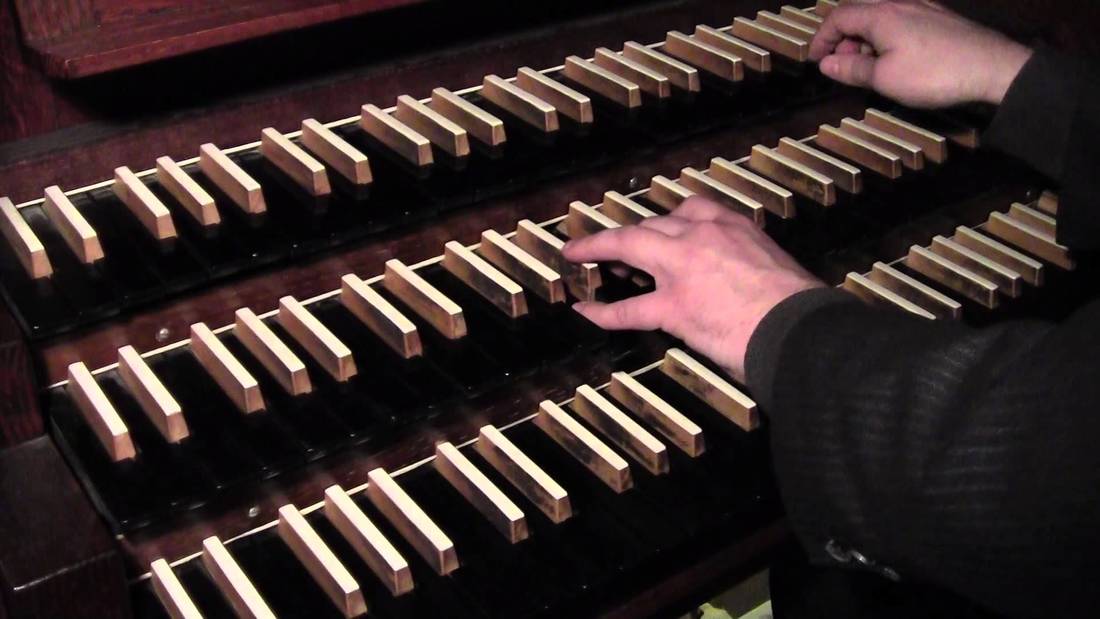
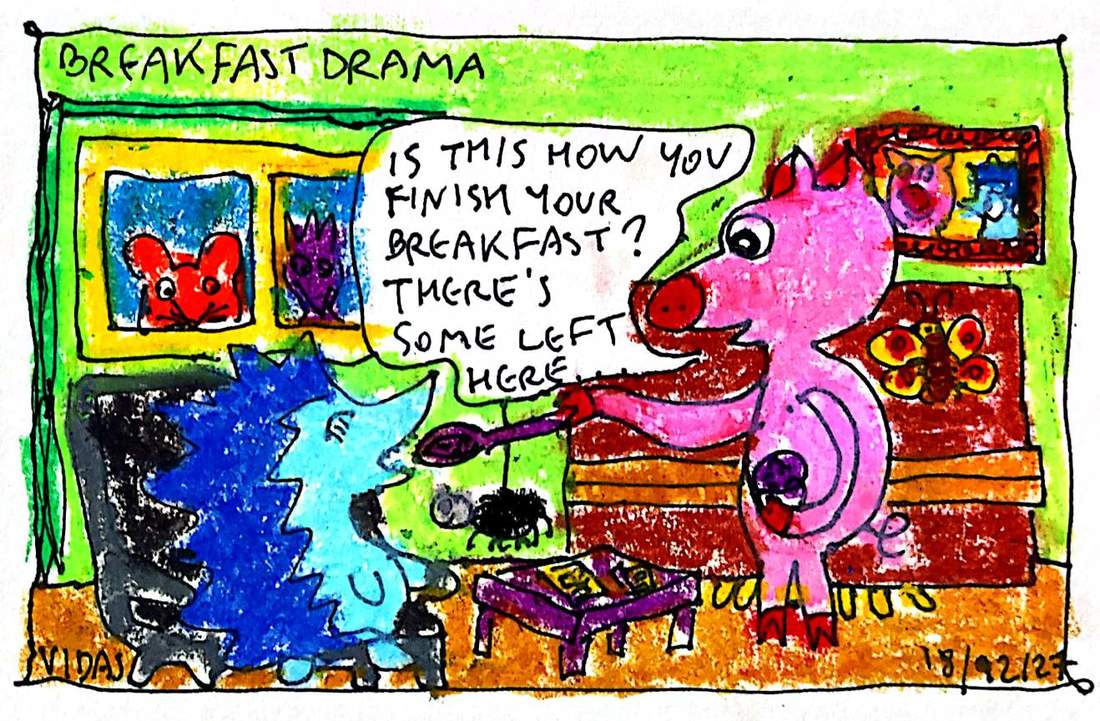

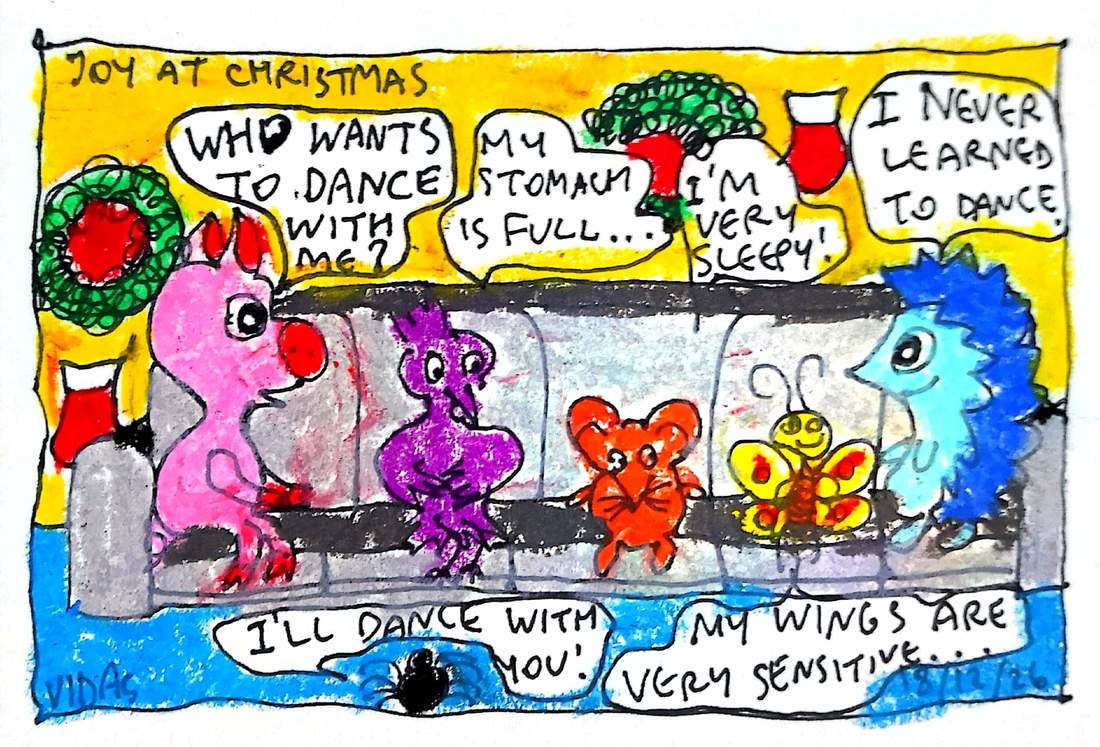
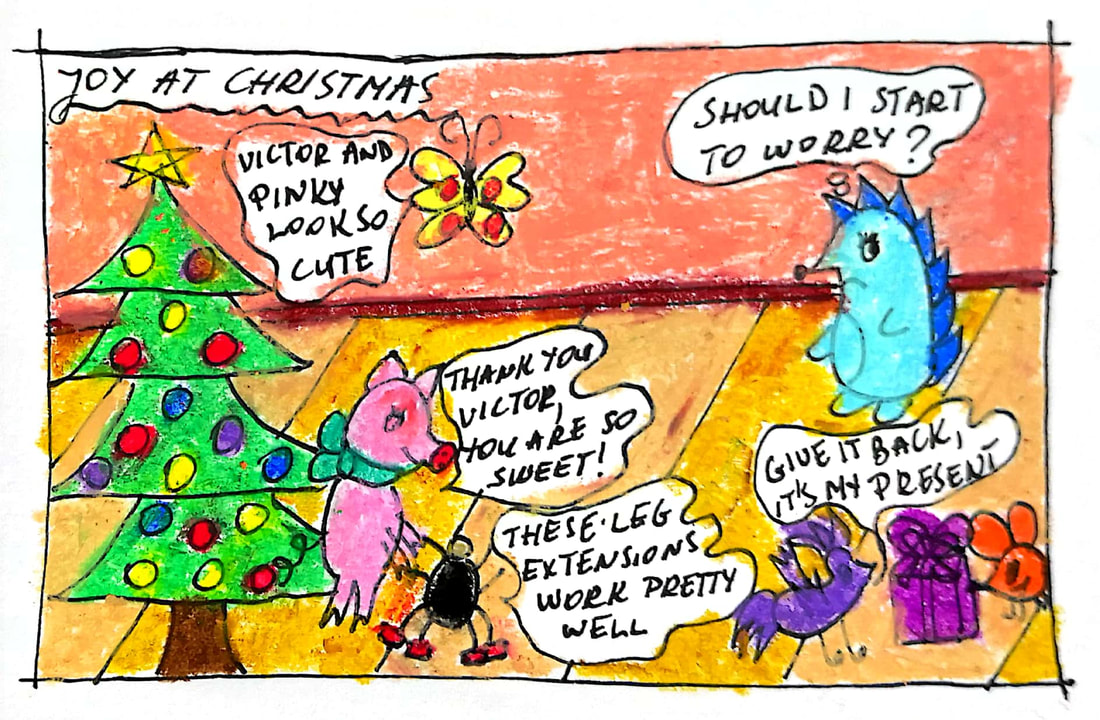

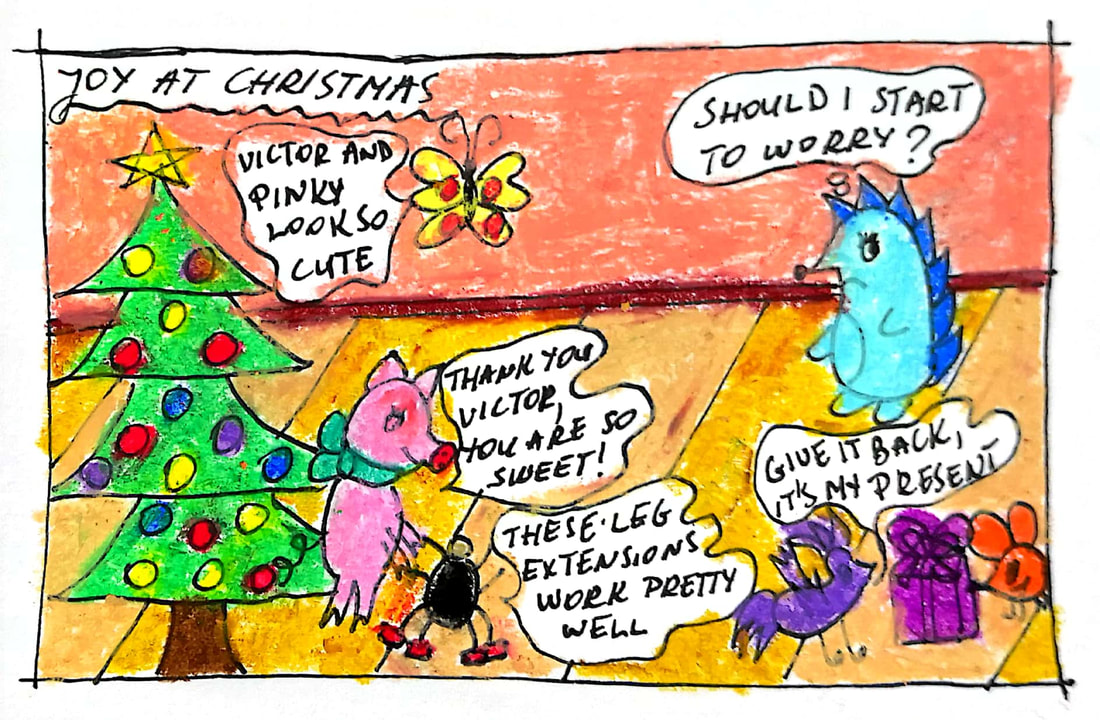
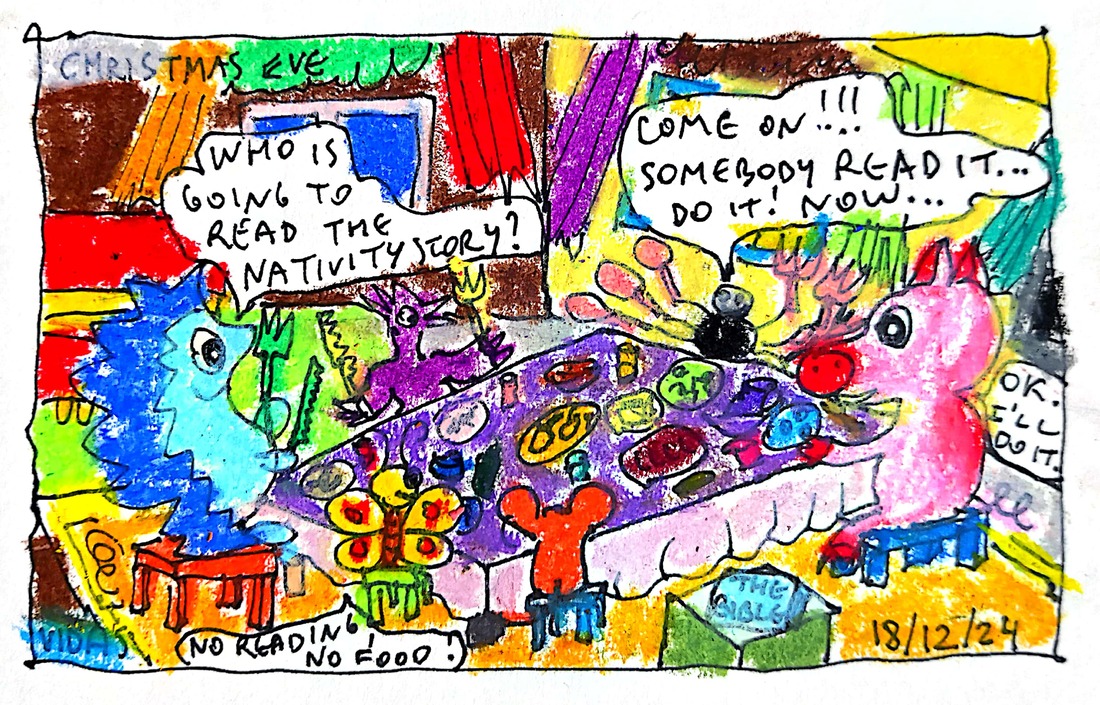

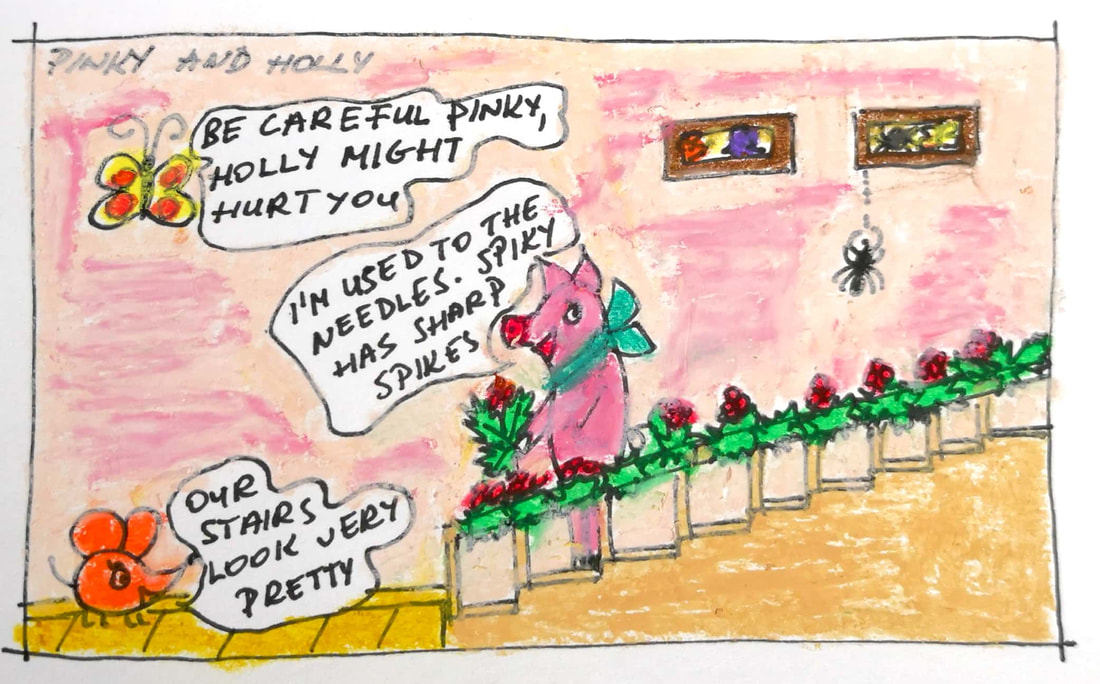
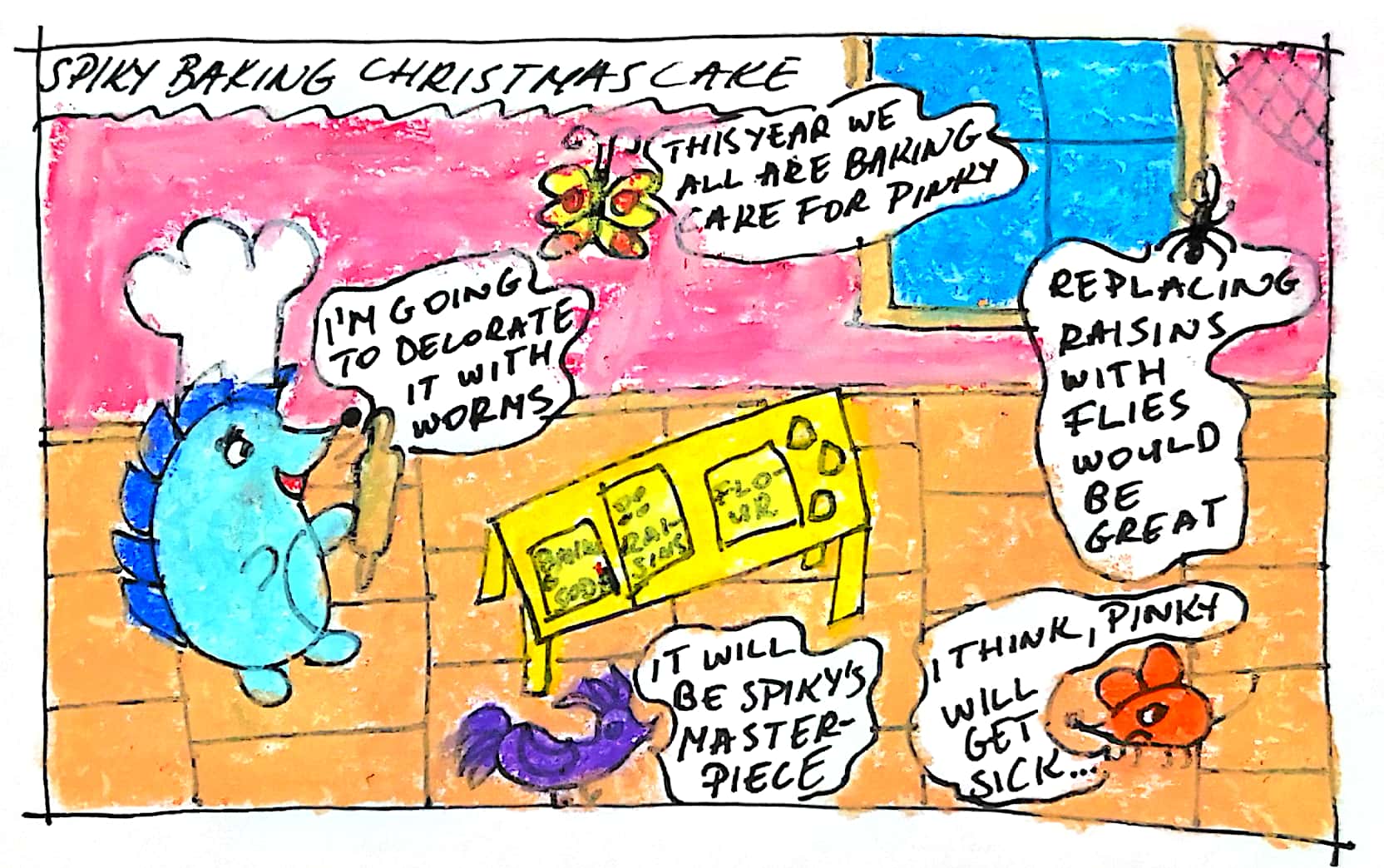
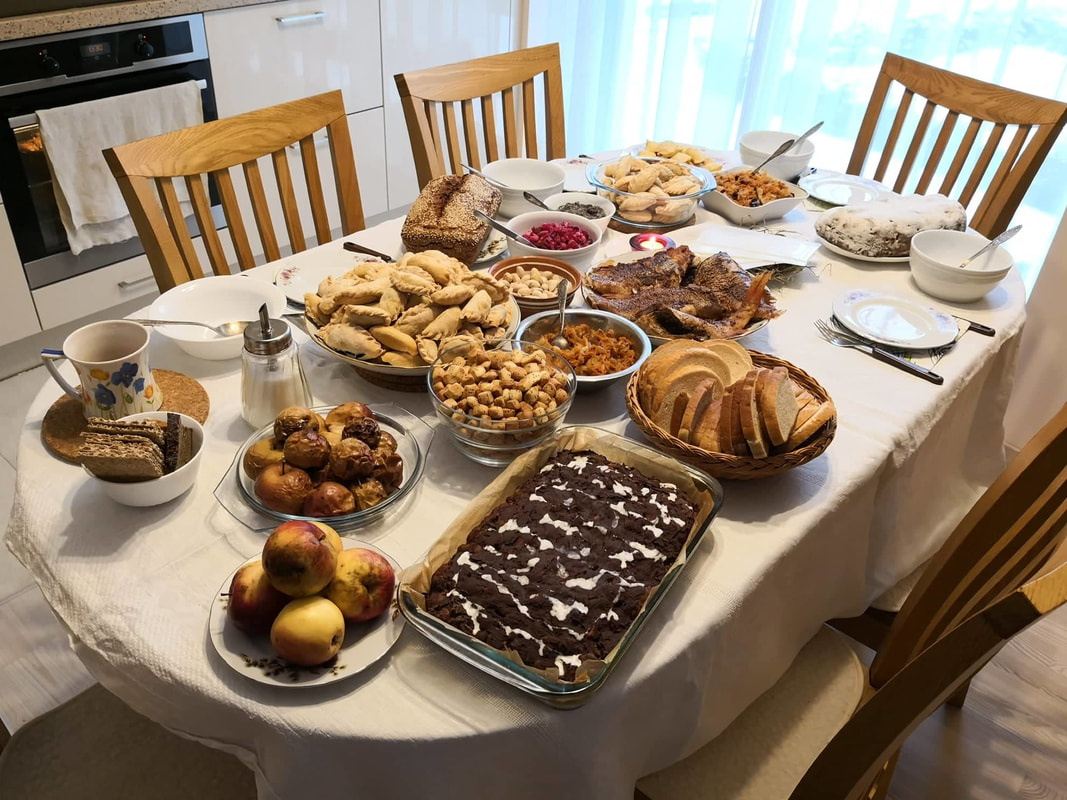
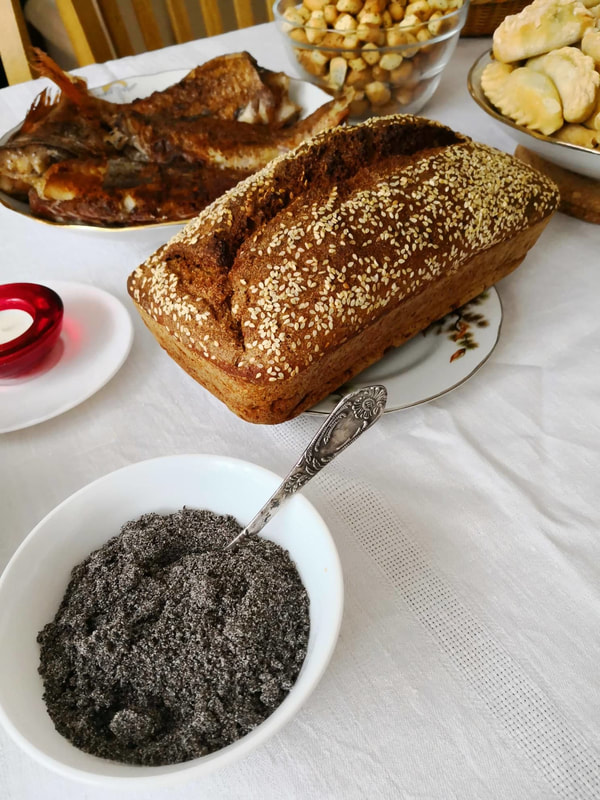

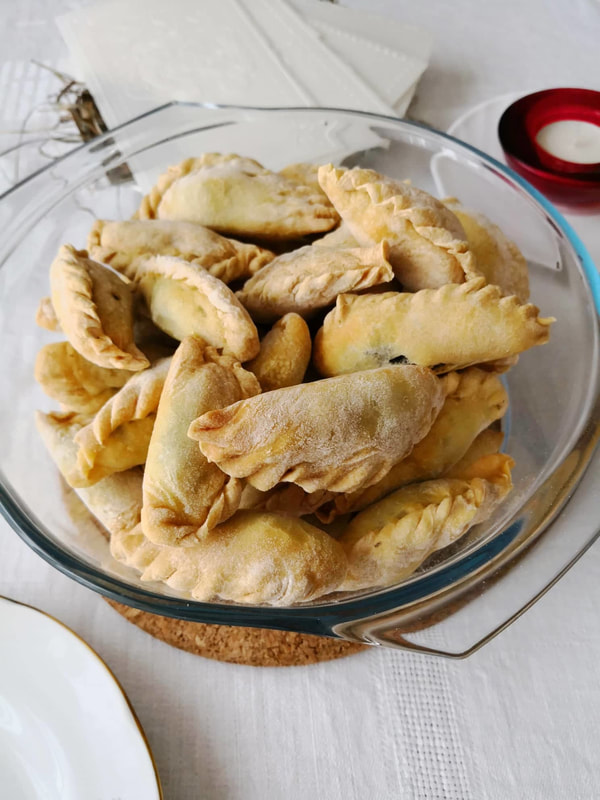
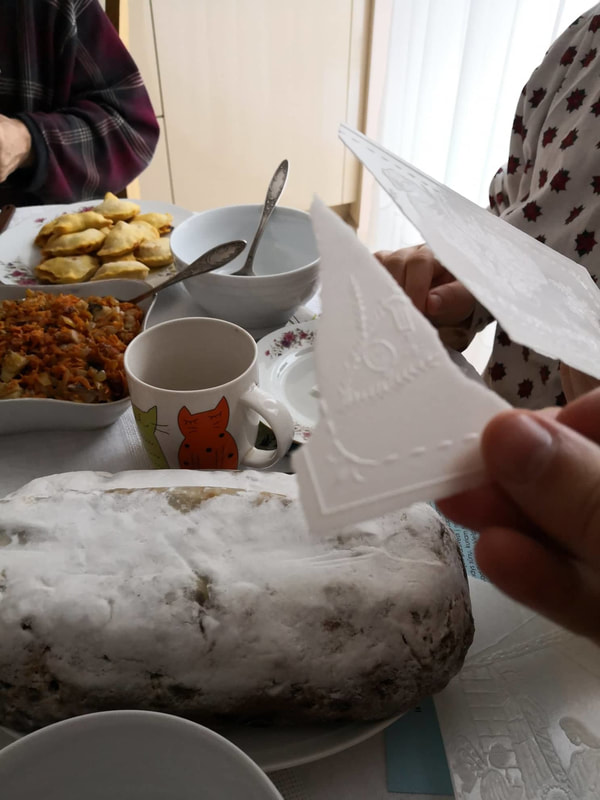
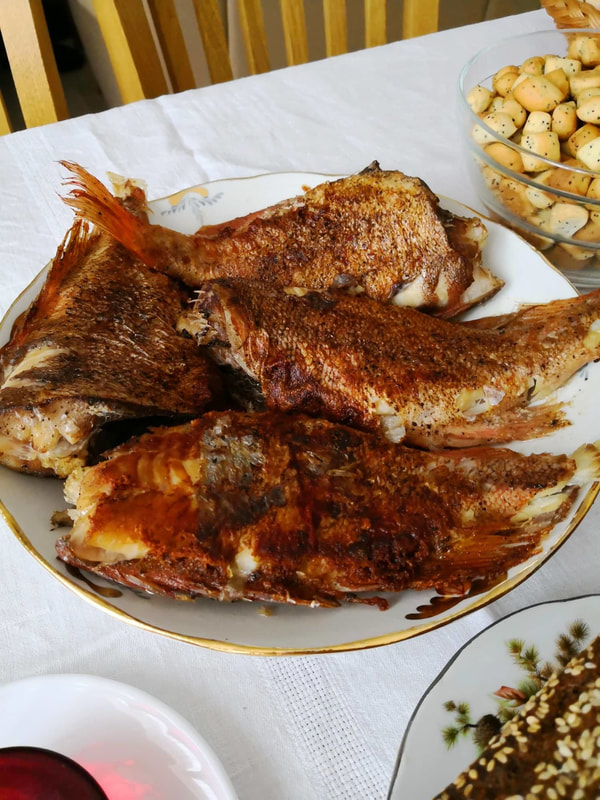

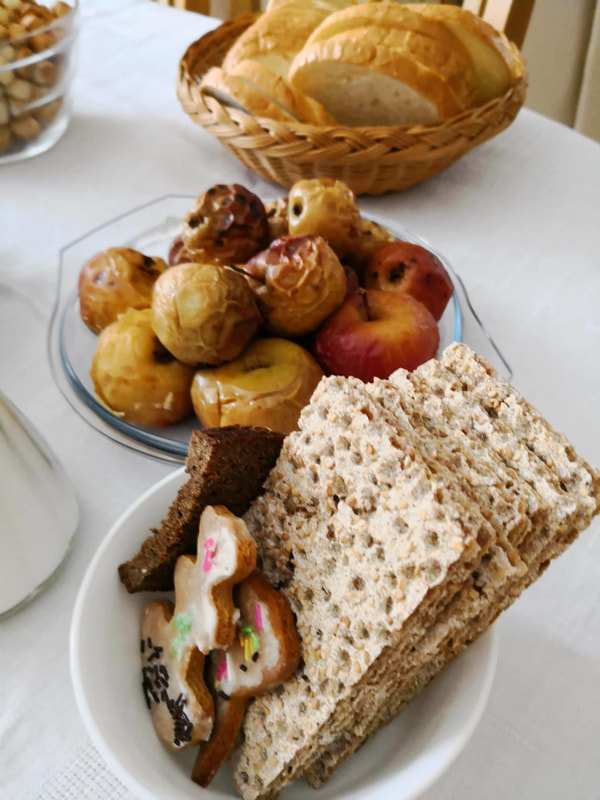
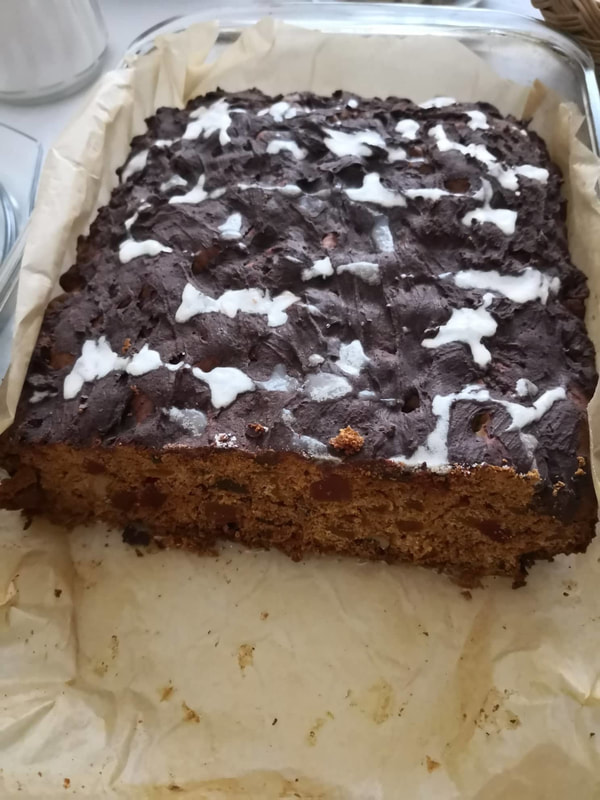
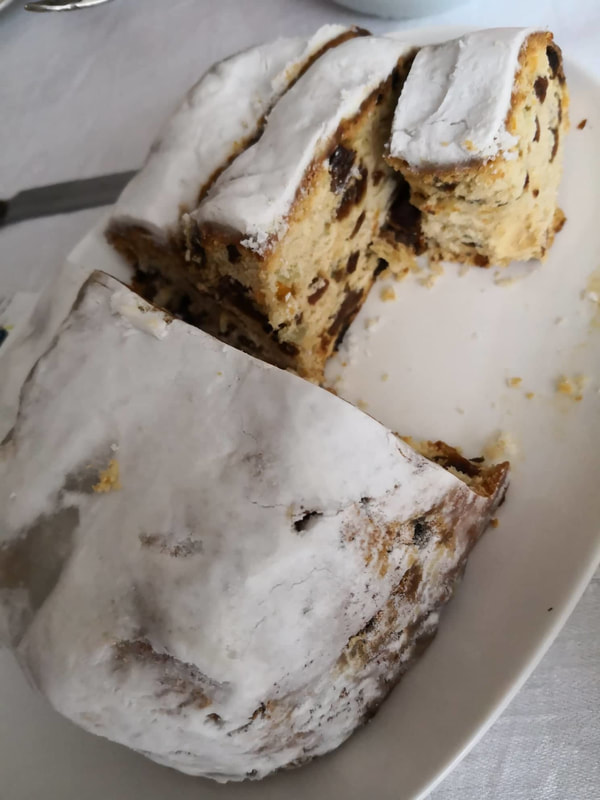
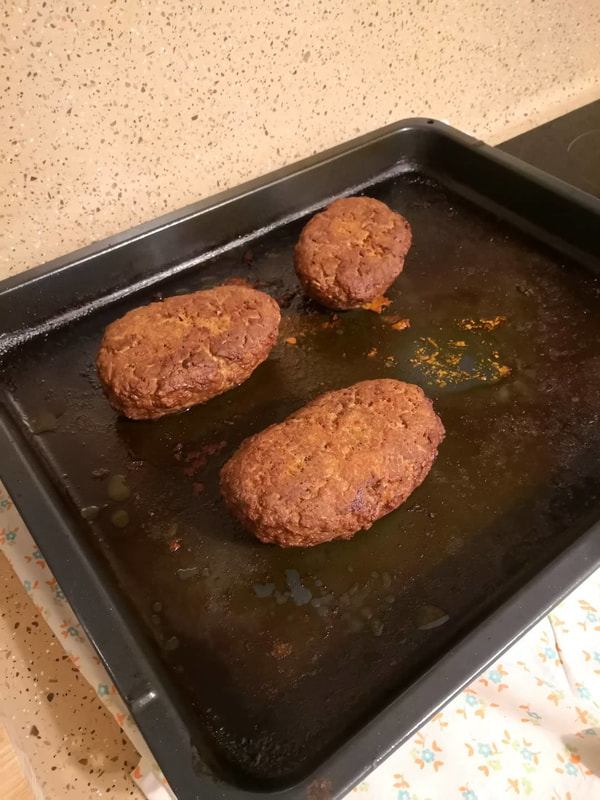
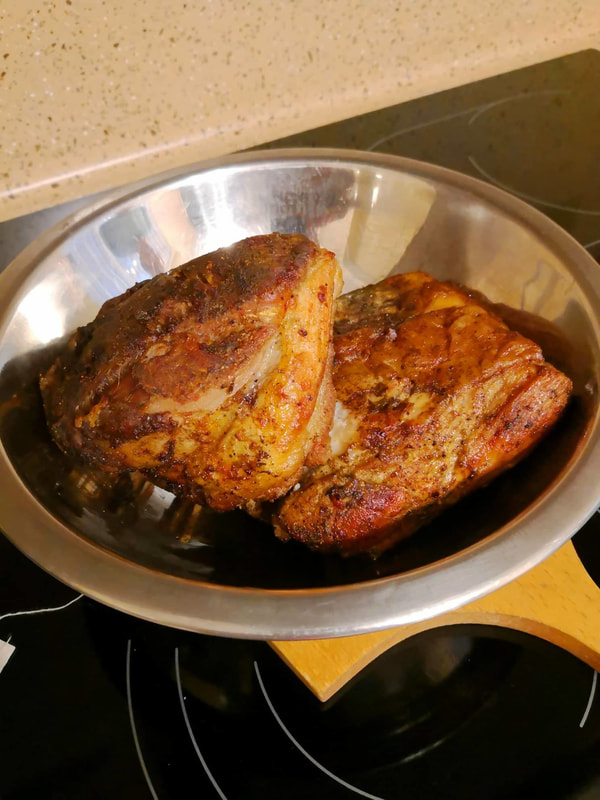





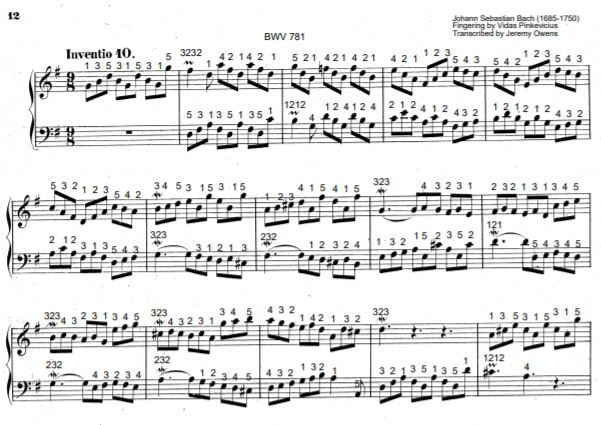



 RSS Feed
RSS Feed